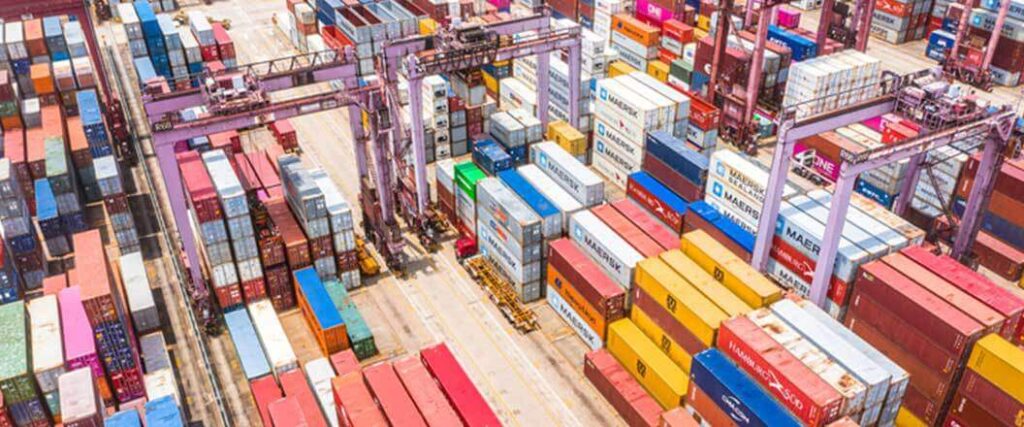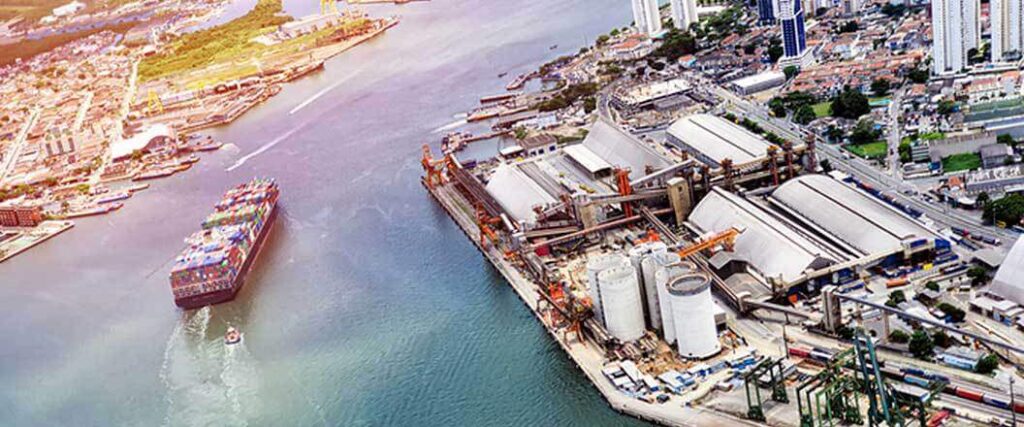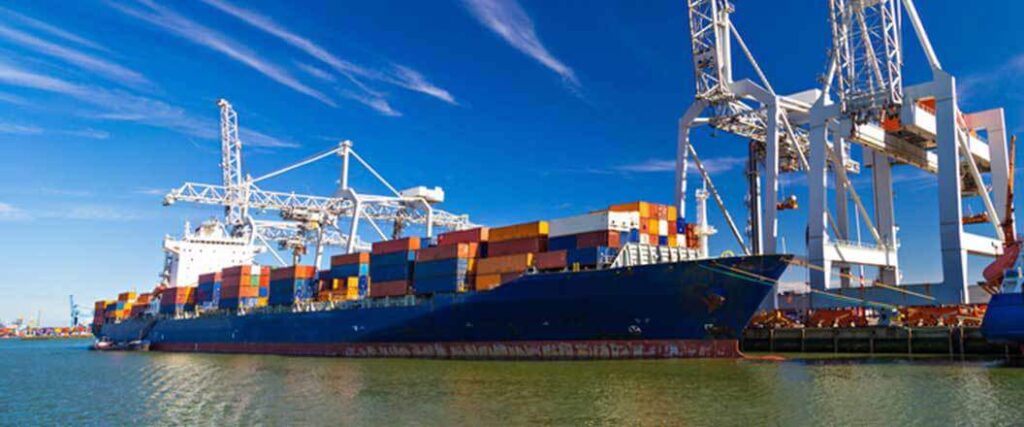CIF insurance is a common Incoterm that importers and exporters use when conducting an international transaction. With all the things that can go wrong with international shipments, insuring freight from damages and loss is extremely important. The CIF Incoterm helps both parties determine who is responsible for taking care of this important task.
According to the International Chamber of Commerce (ICC), CIF stands for cost, insurance and freight. CIF insurance dictates that the seller pay for transport to the port of destination and provide insurance to protect the shipment. The CIF Incoterm® also states that insurance must cover 110 percent of the shipment's value.
We’ll go into detail about the responsibilities CIF insurance dictates and the benefits that buyers and sellers will enjoy when they choose to use this Incoterm.
Incoterms like CIF insurance are international shipping agreements that buyers and sellers use to define their responsibilities when conducting sales. There are many cultural and language boundaries that buyers and sellers might struggle with when conducting their transactions.
The ICC created Incoterms to help buyers and sellers in different countries better understand one another. Counting CIF, there are a total of 11 Incoterms that buyers and sellers can agree to.
The 11 Incoterms are:
Buyers and sellers aren’t required to use Incoterms to conduct their transactions. It’s also important to note that Incoterms aren’t legally binding. That said, buyers and sellers often adhere to the agreed-upon Incoterms to ensure a smooth transaction and shipping process.
If you're worried about your freight being stolen, then read our article on cargo theft prevention.

CIF insurance is an Incoterm that can only be used for ocean and inland waterway transportation. From the port of origin to the port of destination, there are a variety of dangers that threaten the well-being of freight traveling by water. These catastrophic dangers result in significant loss of cargo year after year.
Average Occurrences of Damage For Ocean Freight Annually
| Amount of goods that arrive with damage | 11 percent |
| Average amount of containers lost each year | 1,582 |
| Average amount of containers lost due to catastrophic events at sea | 568 |
Provided by Schechter, Shaffer & Harris
These statistics show that ocean shipping can be very dangerous for freight. Fortunately, CIF can provide financial compensation if something occurs.
While this Incoterm doesn’t indicate exactly what type of insurance has to be obtained, marine insurance is normally used since the goods are being transported by vessel. The CIF Incoterm does dictate that insurance should cover 110 percent of the value of the goods being shipped.
Learn about inland marine insurance so you can protect your goods while they're being shipped by land.
CIF insurance is very friendly toward the buyer because it requires the seller to fulfill a considerable amount of responsibilities.
Among them are:
Thanks to the CIF Incoterm, buyers don’t have to worry about insuring their goods when importing them from another country. Instead, the buyer is responsible for completing the importation side of the shipping process.
Among these responsibilities are:
Both buyers and sellers have their responsibilities under CIF, but it’s the buyer who ends up in a more relaxed position compared to the seller.

Although there are many responsibilities that the seller has to complete under CIF, there are also many benefits that they can reap. Buyers will also experience numerous benefits when agreeing to the use of this Incoterm.
The buyer reaps most of the benefits when the CIF Incoterm is agreed upon. This Incoterm dictates that the seller is responsible for organizing the shipment.
Some major benefits to the buyer include:
Although the risk is transferred to the buyer once goods are loaded onto the vessel, the buyer simply has to wait until the goods arrive at the port of destination before moving the freight themselves. Overall, the CIF Incoterm makes the shipping process very smooth and easy for the buyer.
Sellers can also enjoy some unique benefits offered by CIF insurance. This agreement means the seller will have more control over the shipping process. This gives sellers the ability to ship goods in a manner that’s most convenient for them
By having more control over the shipping of the goods, sellers can:
It’s for reasons like these that sellers don’t mind taking on the extra work that CIF insurance places upon them.
Read our article on the benefits of cargo insurance to learn about the other forms of insurance that can help you.
Buyers and sellers have their unique reasons for agreeing to the CIF Incoterm. For a buyer, the CIF Incoterm is a great choice if they don’t want to be too involved in the exporting process. CIF can be especially beneficial for a buyer that doesn’t have experience dealing with customs authorities in the seller’s home country or in finding a vessel to transport the goods.
Sellers may choose CIF so they can have the ability to organize their shipment the way they see fit. By doing so, the seller won’t have to worry about any interference from the buyer. Lastly, sellers that agree to CIF won’t have to worry about all the customs formalities of the buyer’s country.
Whether you’re a buyer or a seller, insuring your freight when it’s traveling from another country is always a good idea.

Another Incoterm used in international shipping that relates to insurance is CIP, or carriage and insurance paid to. Both of these Incoterms are fairly similar to one another as far as the responsibilities that the buyer and seller are responsible for.
Nonetheless, there are still some considerable differences between them which include:
We’ve established that CIF insurance can be used to insure freight that’s being transported through an inland waterway or by the ocean. CIP differs from this because it can be used for international shipments that are transported using any mode of transportation.
This includes:
Being able to insure goods regardless of their mode of transport gives buyers some added flexibility in how they organize their shipments. Another key difference is that CIF insurance is ideal when transporting containerized cargo. This is because CIF is for freight that’s transported by inland waterway or ocean, and containerized cargo is considered at risk when it reaches the port of destination.
The transfer of risk between the two Incoterms is slightly different as well. Under CIF, risk transfers from the seller to the buyer when goods are loaded on the ship. Risk under the CIP is transferred from seller to buyer when the goods have arrived at the port of destination.
Whether you’re a buyer or a seller, insuring freight that’s transported internationally is extremely important. With the CIF and CIP Incoterms, insurance will have to be used to protect shipments.
Check out our article on international cargo insurance to learn more about the broad range of coverage you can obtain when shipping goods overseas.
When you ship with Freight Insurance Coverage, you won’t have to worry about asking for insurance protection for your shipments. We automatically apply insurance coverage to every shipment that a customer books with us.
The cost of insurance protection is added to the total cost to ship and that amount is reflected in your quote.
If you want a supreme level of coverage for your shipments, book your load with Freight Insurance Coverage by filling out your quote below. You can also contact our team at (866) 975-2713 if you have any questions or concerns.
Freight Insurance Coverage
315 NE 14th Street #4122
Ocala, FL 34470